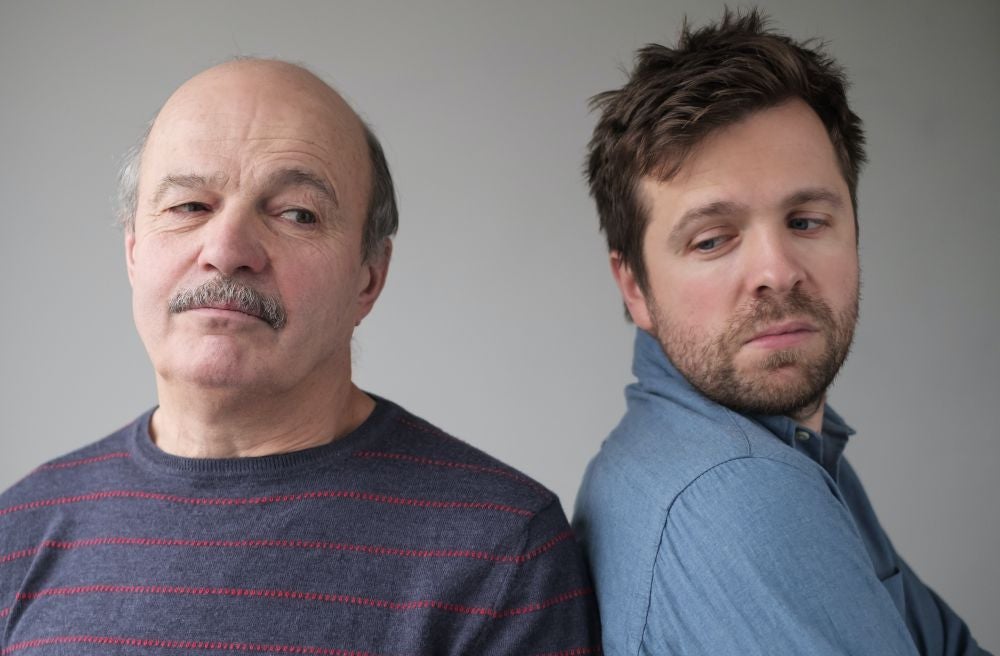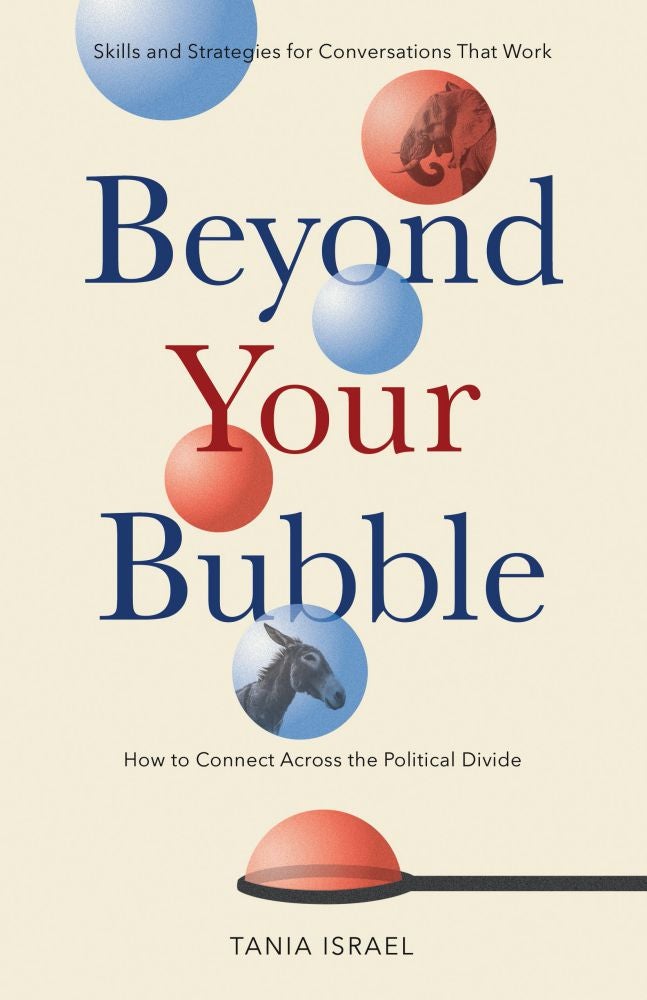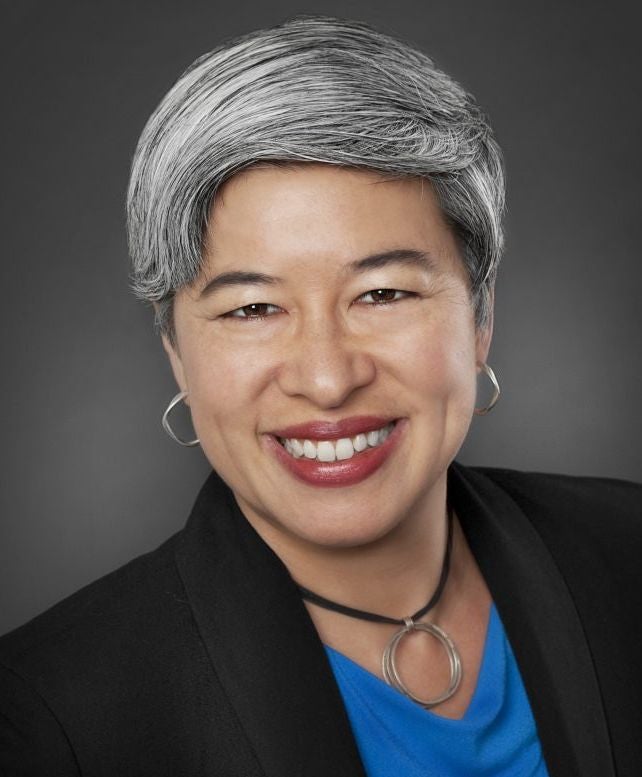
‘Beyond Your Bubble’


Here’s a newsflash that will surprise exactly no one: The United States is a deeply, bitterly divided nation. We see it in the news and, more viscerally, on social media. Anyone on Facebook who’s tried to “reason” with a friend or relative on the other side of the aisle will attest to this.
It’s gotten bad enough that a lot of people have given up even trying to talk to the other side. Tania Israel says it doesn’t have to be this way. A professor in the Department of Counseling, Clinical and School Psychology at UC Santa Barbara’s Gevirtz School, she’s the author of “Beyond Your Bubble: How to Connect Across the Political Divide, Skills and Strategies for Conversations That Work” (American Psychological Association, 2020).
Israel, whose research focuses on supporting the mental health of the LGBTQ community, argues that open, honest dialogue can bridge our divisions and allow us to humanize, not demonize, people with whom we disagree.
“The United States,” she told The Current, “since it was founded, has certainly had differences of opinion, but it’s been very important to the process of democracy that we can actually communicate, have civil discourse about our differences. And I actually think that the differences we have in the United States make us stronger, and that includes diversity of thought as well as other kinds of diversity.”
“Beyond Your Bubble” offers, in eight chapters, clear and practical lessons in how to have a constructive conversation with, for example, the uncle who posts disagreeable opinions on Facebook. To illustrate the lessons, Israel follows the interactions of two fictitious cousins, Celine and Kevin, who are on opposite ends of the political spectrum, as they work to have a constructive dialogue.
“I do hear people saying that family relationships are one of the main things that motivates them to want to have dialogue,” she said. “And so I wanted to show people what dialogue would look like.”
Being able to talk to people outside our sociopolitical spheres isn’t merely a matter of personal satisfaction, Israel believes, it’s important to our mental health and the state of our democracy, and the book can help.
“People are distressed about political polarization,” she said. “There are studies that show that our stress around politics has increased as political polarization has increased. So it’s affecting our health. And so if nothing else, if we can reduce our stress around it.
“And I think that the book can help to do that,” Israel continued, “because it will help to bring the other side into clearer focus and it will also help people to feel like they have the skills, and when they anticipate a conversation it won’t feel so daunting. So I think in all of those ways, it can help in terms of just that individual consequence.”
The book has its roots in the aftermath of the 2016 election. Israel could see the country was divided, and started to work on ways to help people struggling with the divide. She created a diagram she jokingly titled “The Flowchart That Will Resolve All Political Conflict in Our Country,” and within six months of the election was offering two-hour interactive workshops. The response was “overwhelmingly positive.”
The phrase “I’m sorry to burst your bubble” has long meant to disappoint someone with facts or to give an unpleasant reality check. Israel, however, sees getting outside our bubbles as an act of growth.
As she writes in the book, “If we cannot survive outside of our bubbles, if we cannot tolerate listening to our friends and families and neighbors, if we cannot see beyond our own perspectives, if we view our fellow citizens as enemies, how can we sustain our relationships, our communities, our country?”



